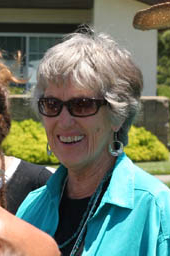Top 612 Tibetan Buddhist Quotes & Sayings - Page 8
Explore popular Tibetan Buddhist quotes.
Last updated on October 6, 2024.
The Himalayan Glaciers on the Tibetan Plateau have been among the most affected by global warming. The Himalayas...provide more than half of the drinking water for 40% of the world's population...Within the next half-century, that 40% of the world's people may well face a very serious drinking water shortage, unless the world acts boldly and quickly to mitigate global warming.
If enough people are sensitive to the tragedy of Tibet, I think it will produce a change politically as well. But furthermore, it's important for the people in Tibet. Now communication is such [that] people know what is happening. Even Tibetan people would know that the Interfaith or the international group of religious people - that everybody who is religious is taking up their cause. It would help them a lot if we give them courage, and that in itself is enough.
There is a director who should make 'Silver Surfer' - he is mentally committed to it. He's doing another movie now. What's most important to me about this guy, first, is that he's incredible with visuals. But he's also a spiritual guy, a Zen Buddhist. ... Galactus is a force of nature, not a being. That's all I'm saying.
Those who would be employed in propagating the Gospel should be familiar with the doctrines he is to combat and the doctrines he is to teach, and acquire a complete knowledge both of the Sacred Scriptures and of these philosophical and mythological dogmas which form the souls of the Buddhist and Hindu Systems.
What yoga philosophy and all the great Buddhist teachings tells us is that solidity is a creation of the ordinary mind and that there never was anything permanent to begin with that we could hold on to. Life would be much easier and substantially less painful if we lived with the knowledge of impermanence as the only constant.
It is important to have determination and optimism and patience. If you lack patience, even when you face some small obstacle, you lose courage. There is a Tibetan saying, "Even if you have failed at something nine times, you have still given it effort nine times." I think that's important. Use your brain to analyze the situation. Do not rush through it, but think. Once you decide what to do about that obstacle, then there's a possibility that you will achieve your goal.
There are energies that reside in each phone and phoneme. And we can release them. And it can be grand and vast and you can create a realm where you can dwell for a while. Where things are perfect symbols of themselves, no manipulation. And that connects to me to the Buddhist view. From that perspective we can wake up on the spot, be conscious of our world, think of others.
I just want to live as a simple Buddhist monk, but during the last thirty years I have made many friends around the world and I want to have close contact with these people. I want to contribute to harmony and peace of mind, for less conflict. Wherever the possibililty is, I'm ready. This is my life's goal.
In our usual mind state, we are continually activating the process that in Buddhist terminology is known as 'bhava,' which literally means 'becoming.' In this space of becoming, we are subtly leaning forward into the future, trying to have security based on feeling that we can hold on, we can try to keep things from changing.












































